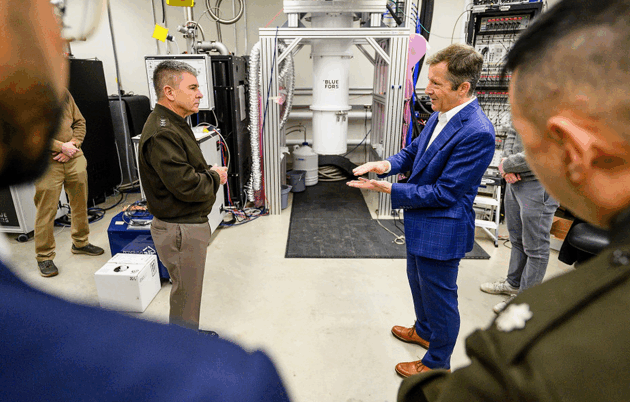Diversifying UW’s research portfolio with federal defense, cybersecurity projects
A new campuswide effort seeks to build on existing relationships and develop closer ties between University of Wisconsin researchers and decisionmakers at the United States Department of Defense (DoD), defense-related industries, and other government partners focused on national security, like Sandia National Laboratories.


